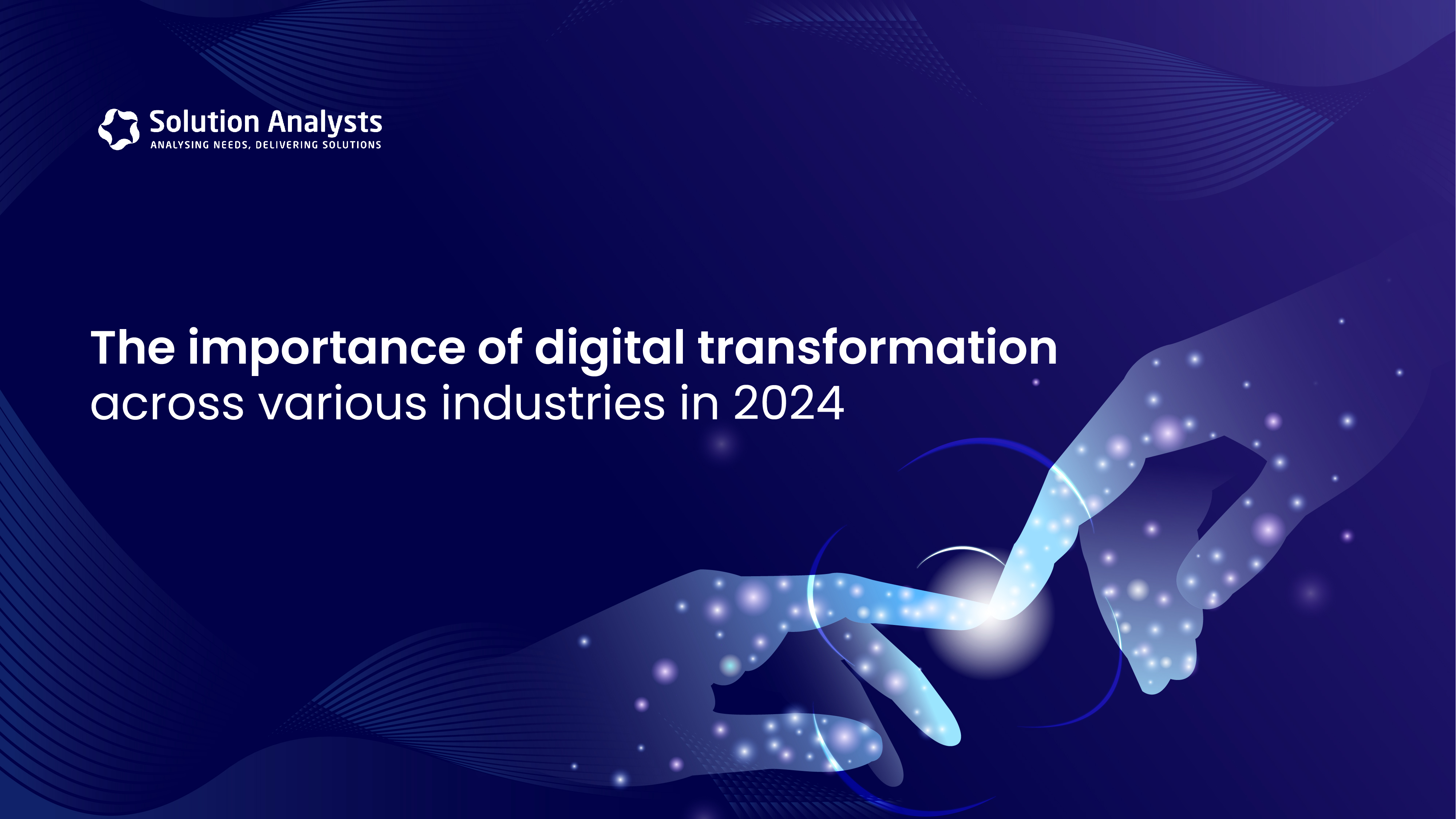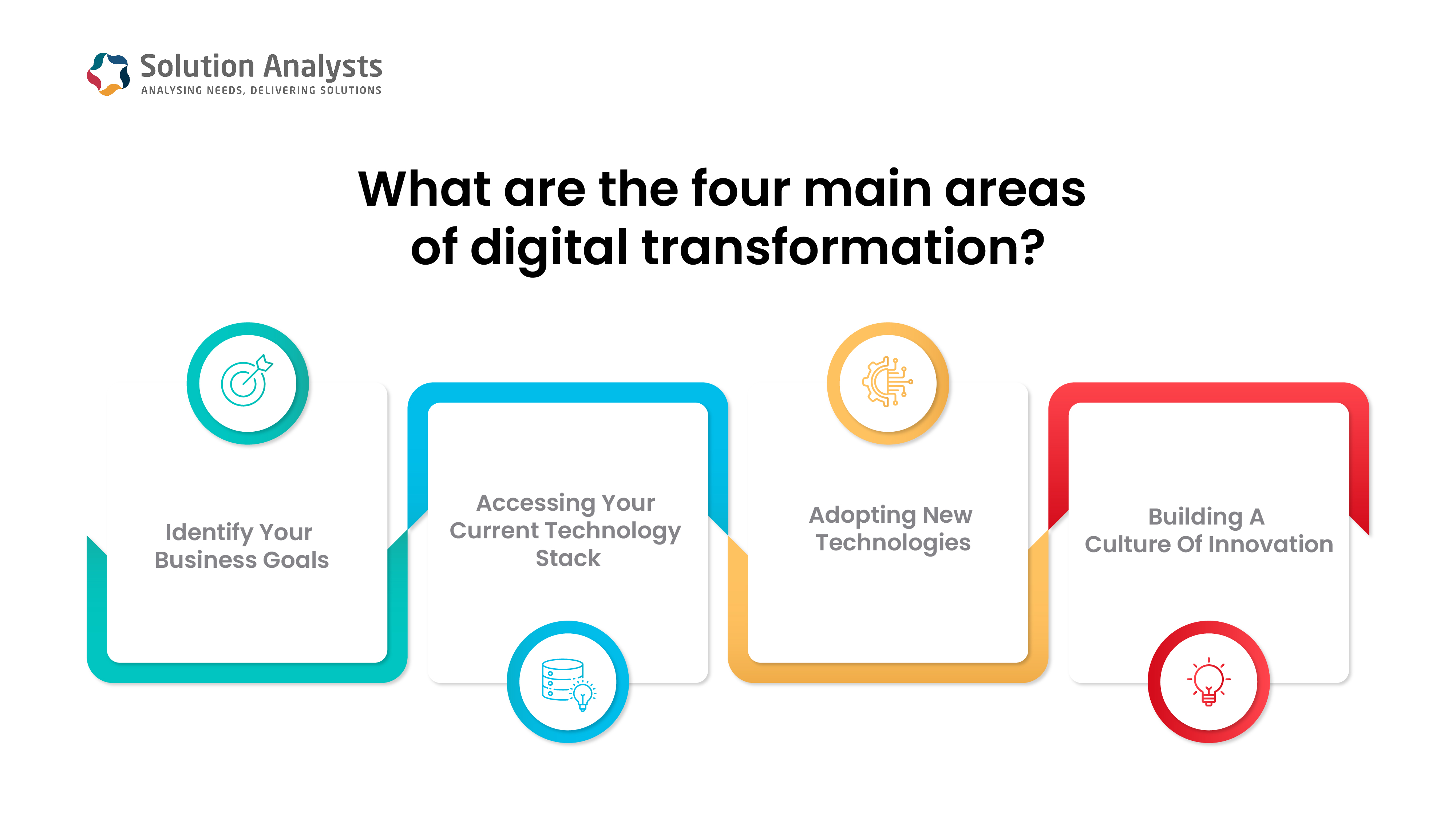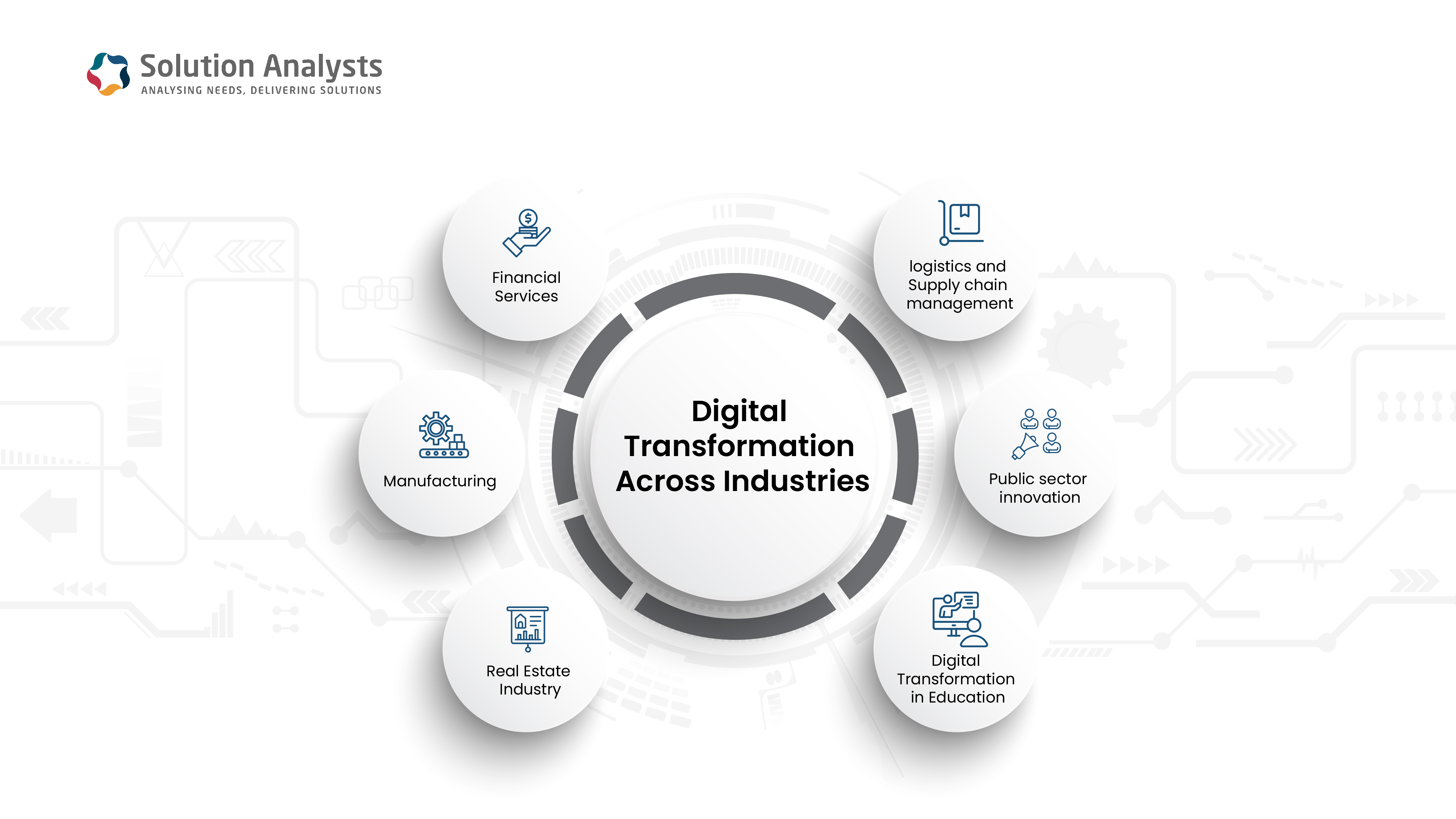
Table of Contents
Which medium of communication inspired you to make your last purchase? Which Ad suggestion popped up on your Instagram or TikTok while you were stuck in an endless scrolling loop? Why does Google know what’s in your mind before you finish typing the entire sentence? The answer to all of these questions is that “Digital Transformation” has become more than just a buzzword. It is one of the most powerful mediums in recent times for reaching your customers, which is one of the reasons why digital transformation is important.
According to Fortune Business Insights, the global digital transformation market was valued at 2.27 Trillion USD in 2023. Businesses that fail to adapt digital marketing risk falling behind the competition and ultimately becoming irrelevant. But why is digital transformation so crucial for business growth? Let’s explore the reasons.
Why Digital Transformation is the Key to Business Growth
Enhanced Customer Experience
In the new age, customers expect a seamless experience across all touchpoints. Digital transformation allows businesses to gather and analyze customer data to help organizations boost their business growth. Seamless online interactions create a loyal customer base that is more likely to purchase from recommended brands. Easy-to-use mobile applications are an example of how digital transformation can improve customer journeys.
Increased Efficiency
Automating routine tasks and streamlining processes can increase operational efficiency. Digital transformation eliminates the need for manual tasks. For example, taking an order on call can be changed to placing an order online. This eliminates the need for manual intervention and fastens the process that can be run 24/7.
Data-Driven Decisions
Data is the lifeblood of decisions you’ll make on your journey of digital transformation. By collecting and analyzing data, businesses can gain a deeper understanding of their customers, competitors, and market trends. This data can help them make better decisions and improve product development.
Access to New Markets
Entering new markets can be challenging; Digital marketing opens up new channels for reaching customers using social media, online marketplaces, and mobile platforms. The expanded reach allows businesses to explore new markets both domestically and internationally.
Competitive Advantage
In a globalized market, staying ahead of the curve is critical. Businesses that fail to adapt risk being left behind. Digital transformation helps companies innovate faster and explore new business models, products, and services. By embracing technology, companies can differentiate themselves from the competition, who might still be following traditional methods.
Future proof your business
What is a business’s purpose? The answer is to succeed, get ahead, and keep growing. Digital transformation consulting services help businesses adapt to these changes and stay relevant in the long run. New technology and agility can help businesses stay ahead of the curve and navigate disruptive forces.
Cost Reduction
While the initial investment in digital transformation can be higher, the long-term benefits lead to savings. Automation reduces the need for manual labor, and digital channels are more cost-effective than traditional marketing methods.
Scalability
Digital platforms and tools offer unparalleled scalability, which is not nearly possible if you follow traditional mediums. Digital innovation breaks the limits of physical constraints, space, or visibility. Cloud-based services, in particular, provide the infrastructure needed to support rapid growth, ensuring that businesses can scale up.

What are the four main areas of digital transformation?
- Identify your business goals
- Accessing your current technology stack
- Adopting new technologies
- Building a culture of innovation

The Impact of Digital Transformation on the Financial Services Industry
The advancement of digital technology has transformed the financial industry. When you look closely at what digital transformation in financial services is, you’ll see that it has not merely started a trend but redefined the shift in how financial institutes operate. AI algorithms can analyze vast amounts of data and identify suspicious patterns and potential risks. Peer-to-peer lending platforms can connect borrowers and lenders with suitable profile matches, bypassing traditional banking. digital transformation intersects with global citizenship trends like citizenship by investment where individuals leverage digital platforms to explore new economic landscapes and secure alternative residencies
Why is Digital Transformation Essential for Manufacturing?
The manufacturing industry has come a long way since the first industrial revolution. Mechanized production powered by steam and water used to run early versions of machines, which were later converted to electrical. To answer the question of why digital transformation is important today, it is important to understand that today, we stand in an era that merges digital technologies with traditional processes to increase productivity.
Why Digital Transformation is Key to Success in the Real Estate Industry
The real estate industry has traditionally been slow to adopt new technologies, relying heavily on manual processes and face-to-face meetings. However, the rapid advancement of technologies has forced the industry to rethink its old approach. Digital transformation is no longer an option but is necessary to survive today’s competitive landscape.
Leveraging data analytics helps companies make informed decisions about property investments, pricing strategies, and marketing. New-age devices and sensors can track occupancy rates, energy consumption, and maintenance requirements.
Digital Transformation in Education: Preparing for the Future of Learning
Digital transformation is revolutionizing education, equipping students and educators with tools for a future filled with innovation, creativity, and growth. With the help of this transformation educators can create a personalized learning experience tailored for individual students. Data analytics can help identify students’ abilities, preferences, and progress, allowing teachers to provide timely feedback for improvement.
The role of digital transformation in Public sector innovation
As a result of digital transformation, the public sector is no longer the same as it used to be. It is making public services more efficient and accessible. Online platforms, mobile applications, and citizen-centric portals are offering citizens control over their rights and interactions with the government. Online platforms can help people access information, eliminating the need for physical visits and long queues.
Transforming logistics and Supply chain management through digital transformation
Traditional logistics and supply chain management models have been plagued by a lack of visibility and high costs. Paper-based manual processes and inventory management are used to lead to delivery delays. Vital digital technologies have changed this scenario. AI/ML can now analyze large data sets and identify potential bottlenecks in the supply chain.
Cloud-based platforms enable real-time collaboration, data sharing, and analytics, allowing companies to make changes in the supply chain. Robotics and automation can streamline warehouse operations and reduce labor costs.
How digital transformation is revolutionizing healthcare
One of the most significant shifts in healthcare has been moving from paper to Electronic Health Records (EHR). EHRs provide a comprehensive digital footprint of a patient’s health history and health metrics in real-time. Devices like smartwatches, fitness trackers, and heart rate monitors collect data and provide valuable information such as heart rate, BMI Count, Blood pressure, and ECG.
Conclusion
In conclusion, businesses that fail to embrace digital solutions risk falling behind their competitors as technology evolves. From healthcare to real estate, digital transformation has the potential to revolutionize every industry. By leveraging cutting-edge technology such as artificial intelligence (AI), machine learning (ML), Internet of Things (IoT), and cloud computing, companies can streamline their processes and improve efficiency.
It is important to understand that this transformation is not a one-time event but an ongoing journey that requires a strategic approach and a culture of innovation. Companies must invest in the right technologies and transition in a timely manner for long-term success. The time to act is now, and the rewards for those who do so will be significant.










 sales@solutionanalysts.com
sales@solutionanalysts.com biz.solutionanalysts
biz.solutionanalysts






